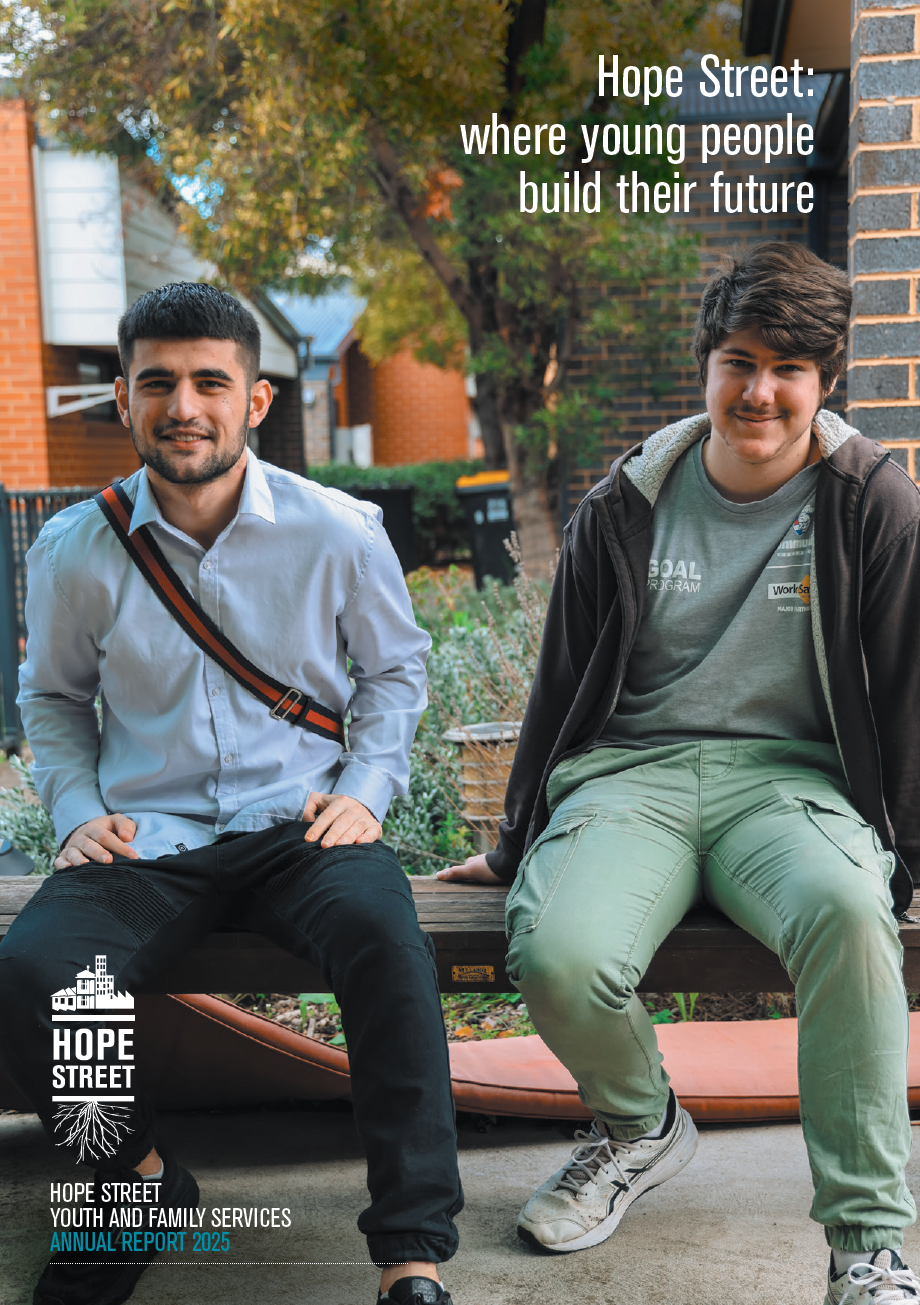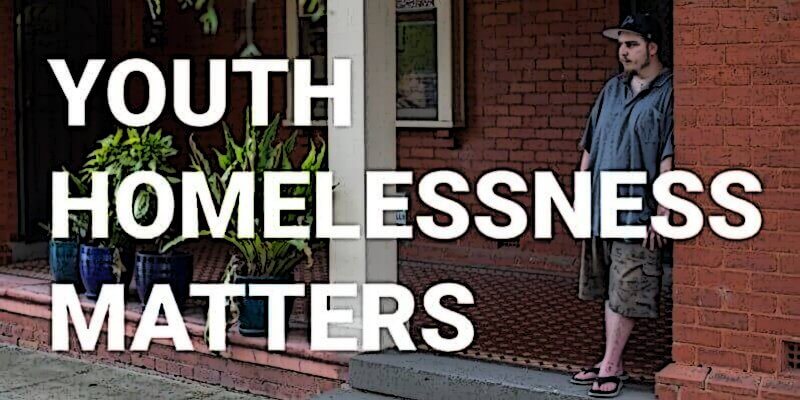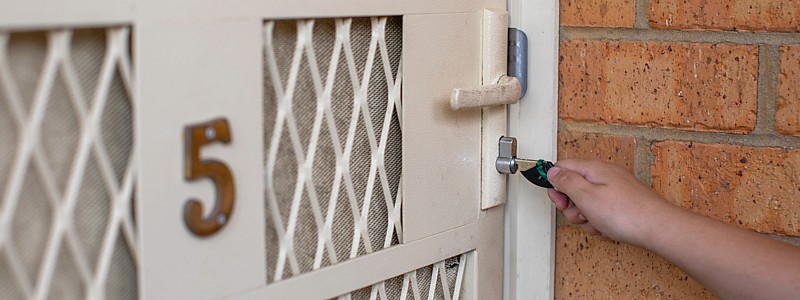Youth Homelessness Matters Day (YHMD) is a national annual campaign, aimed at raising awareness of youth homelessness amongst decision makers and the wider community. The day, Wednesday 17 April 2019, falls in the middle of National Youth Week, a time when the country’s attention is on the plight of young Australians.
More than 28,000 young Australians aged 12 to 25 years old do not have a home, due mostly to them escaping conflict and violence. Once homeless, it is almost impossible for young people to find a home due to the housing affordability crisis in Australia. Youth homelessness is often hidden from view as young people experiencing homelessness stay in refuges, couch surf at friends’ houses, or sleep in their cars.
In honour of Youth Homelessness Matters Day 2019, Hope Street’s CEO, Donna Bennett, has published the opinion piece below calling for place-based responses to youth homelessness that are focused on outer-suburban growth corridors. This editorial will also be published in the April edition of Parity magazine, Australia’s national homelessness magazine.
LIKE. SHARE. ACT. | Youth Homelessness Matters Day Facebook | #YHMD2019
The response to youth homelessness needs to be place-based and focused on outer-suburban growth corridors
An opinion piece by Donna Bennett, CEO of Hope Street Youth and Family Services
Fresh off the bat of March’s National Youth Homelessness Conference in Melbourne, with Youth Homelessness Matters Day taking place on 17 April, and with a federal election imminent, I believe the Victorian youth homelessness service sector needs to petition government for a bigger investment into place-based services in outer-suburban growth corridors.
As Melbourne’s growth corridors explode, and services struggle to keep up with demand, young people experiencing homelessness are forced to leave their communities to seek safety and support. Traditionally, youth homelessness services in Victoria, including crisis accommodation services, have been focused within a 10 kilometre radius of the CBD. And yet, Melbourne’s growth corridors are teeming with young people in need of crisis accommodation and transitional housing as youth homelessness continues to rise to rates not seen before.
For the young people aged 16 to 25 years who Hope Street Youth and Family Services work with, relocating away from their community in their time of crisis only multiplies the challenges they’re facing, creating unnecessary stress and trauma on top of that which they’re already experiencing due to becoming homeless. Young people tell us that they want to be able to stay in their communities where they can remain connected with their friends, their extended family where that’s possible, their schools, their work-places and their medical care providers. They want to be in the place where they feel at home, where they know their way around, and they know how to use the public transport system. All of these local connections, if they remain intact, can help a young person to move through an experience of homelessness well.
Alternatively, when young people are forced to move out of their community and into the CBD or inner metropolitan areas to access the help they need, their experience of being homeless is a more traumatic one. Not only are they trying to come to terms with the family situations that have led to them becoming homeless, be that family violence, abusive relationships, poverty or gender identity issues not accepted by the family, but now they must also deal with the grief of leaving their home community behind and the overwhelm of moving to an unknown community. Anecdotally, we know that young people moving from outer-suburban areas to the CBD, and becoming isolated from their social networks in the process, are at a heightened risk of turning to drug and alcohol use or unhealthy relationships which in turn negatively affect their mental health and exacerbate their experience of homelessness..
Hope Street sees this as a major gap, and believes Victoria can do better by our young people. We believe young people should be able to access the support they need within their local communities.
Hope Street’s response in the growth corridors in the north-east and north-west of Melbourne is placed-based, meaning we work with the local community to get the project off the ground, and we draw on the strengths of each local community we are working with, allowing the community to have ownership over the solutions to youth homelessness in their area. We’re not coming in as the experts – communities know what will work best for them, and we see Hope Street as raising awareness and facilitating a solution. Each community has different challenges and strengths, and a place-based approach is aware of this and responds to these differences in a fluid way. We see ourselves as being part of the community we’re working in, and we take a participatory approach, relying on collaboration and partnership.
The Hope Street First Response Youth Service in Melton, in Melbourne’s outer north-west, is a leading demonstration of community collaboration and an encouraging demonstration of the Victorian Government’s increasing commitment to developing services in outer-suburban areas – for which they should be applauded. An interim model for the First Response Youth Refuge is in operation, providing crisis accommodation in rented properties and specialist homelessness support services whilst we wait for the completion of the building of the refuge that’s currently under construction. The project got off the ground thanks to funding from the Victorian Government (capital and operational costs), The Ian Potter Foundation (funding the first four years of the First Response Youth Mobile Outreach Service), The Flack Trust, the Edward Wilson Trust, Woodgrove Shopping Centre, and some 31 businesses who’ve come on board to make this happen in what is a truly place-based partnership approach.
Up ahead, Hope Street is partnering with the City of Whittlesea to establish the First Response Youth Service on land already allocated by the City of Whittlesea. As we did in the City of Melton, we will work with government, the philanthropic, business and corporate sectors and the local community to establish this service.
Each of us can appreciate the trauma that can arise from a forced departure from one’s home community, especially when taking place on top of existing trauma that has led to one becoming homeless. We all know that feeling of connectedness, of stability, of comfort, that comes from being in one’s familiar environment. Let us work together as service providers, government, philanthropic partners, local councils, business owners and local communities to provide place-based responses in outer-suburban growth corridors around Melbourne.
Interceding in the life of a young person in their time of crisis within their local community, and providing them with the support they need whilst allowing them to remain connected to their home community and with their sense of belonging intact, is highly likely to result in young people being diverted from long-term homelessness. The cost of providing place-based crisis responses is minimal when compared with the long-term individual, social, economic and community benefits. This is a chance to meet young people at their time of need, wherever they may be, and to respond with an early-intervention and prevention approach that has the potential to be a critical turning point in their life. We believe experiences of youth homelessness can be contained to just that – short-lived experiences and not a trajectory to a life of homelessness – when young people receive the support they need in a timely manner and within their own communities. The benefits not just to the young people and their children, but to society as a whole, can’t be understated.
I look forward to continuing with our meaningful partnerships within our local communities and to developing new partnerships so that collectively we can better respond to the needs of young people and their children living the impact and trauma of homelessness. That is being a part of a solution that is life changing and provides hope.














